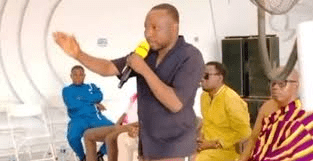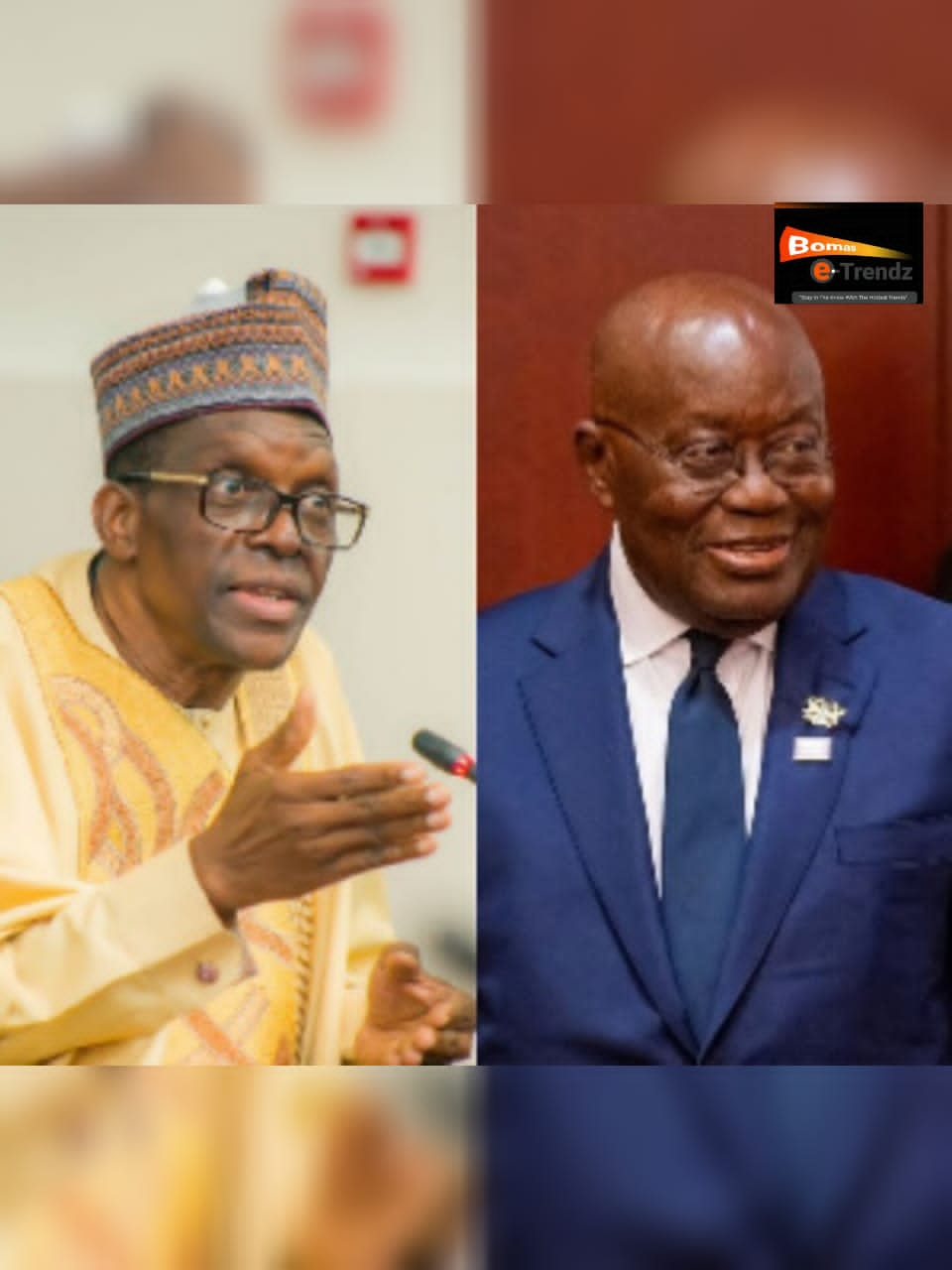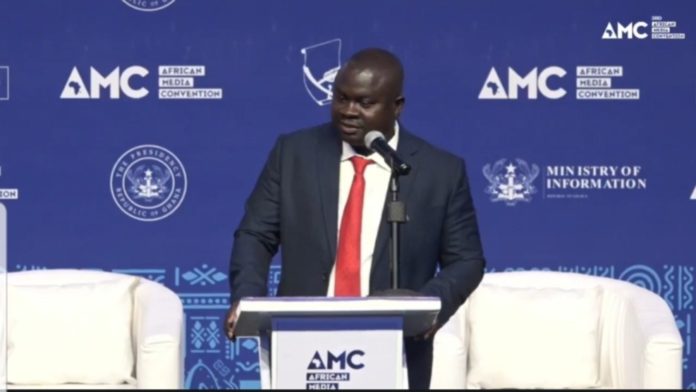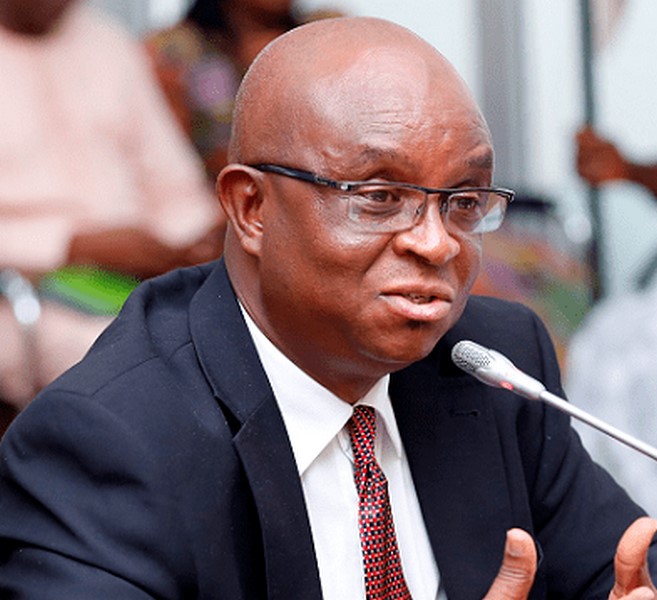Free Wi-Fi: Government pays service provider GHS56m for no internet in schools
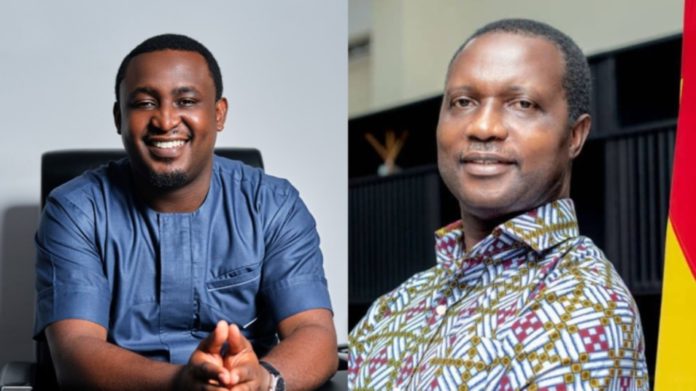
It was 11:00 am on July 6, 2023, at one of Ghana’s prestigious senior high schools, Accra Academy.
Students had gathered in the Information and Communications Technology (ICT) lab, tapping their fingers impatiently on keyboards with exasperating sighs.
In contrast, others muttered under their breaths in frustration, desperately trying to connect to the internet.With time slipping away and their assignment deadline fast approaching, disappointment was etched on their faces as the blank screens on their computer monitors flashed with the inscription, “No internet access.”
Accra Academy Senior High School (SHS) was one of over 700 schools connected to the internet as part of the government’s Wi-Fi for Schools programme. For a while, jumping on the information superhighway was a breeze for both students and tutors. But within a year, the internet was no longer available. The school was disconnected.
“The internet stopped working when we were in Form 2,” says a final-year student. “We no longer use it at the ICT lab.”
The headmaster, Emmanuel Ofie Fiemawhle, explains that the government-supplied internet only worked for a year but was always unstable. Complaints have been filed. He claims that the company responsible for the network has failed to respond positively or meaningfully.
The Old Students Association has since intervened to keep Accra Academy’s vital administrative functions connected to the Internet. Currently, it is only the school’s administration, accounts office and data room that are connected, said the headmaster. The ICT lab and the libraries, where students usually go for research, are without an internet connection.
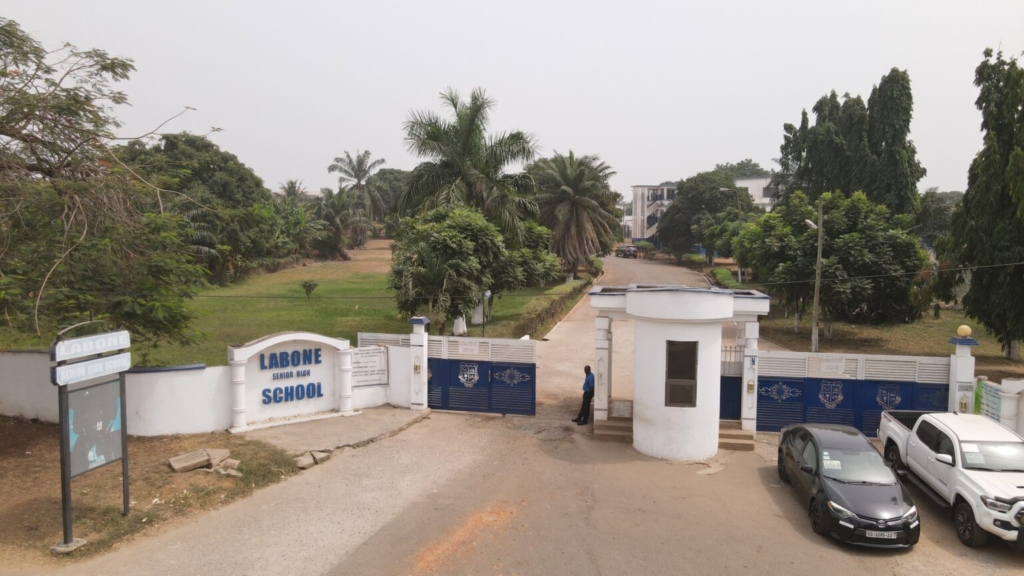
At the Bolgatanga SHS (Big Boss), an E-learning centre sits in the heart of the school. The centre was put up to facilitate teaching and virtual learning among students while assisting teachers to undertake academic research and prepare their lessons. But a year after it was opened, Wi-Fi internet connectivity stopped working.
This has not only affected the E-learning centre and the purpose it was supposed to serve. It has also affected the preparation of lesson notes by teachers. Since the Wi-Fi stopped working, staff have had to use their mobile data to conduct online research.
Authorities say several complaints to the Ghana Education Service and the Ministry of Education have yielded no results. Despite this challenge, Bolgatanga Senior High qualified for two national championships – the National Science and Maths Quiz in 2023 and the Energy Commission’s Senior High Schools Renewable Energy Challenge in 2022. However, the unavailability of internet connectivity affected preparations as the students could not hold virtual lessons and conduct research work online, forcing the school to opt out of both competitions.
“This is frustrating and demoralizing,” a student, who did not want to be named, said of the situation.
The free Wi-Fi for schools’ programme was in fulfilment of a 2016 manifesto promise by the governing New Patriotic Party to collaborate “with the private sector [to] provide free Wi-Fi coverage for senior secondary and tertiary institutions nationwide, dedicated to learning, administration and enhancing the capacity to do research.”
According to the project contractor, the policy resulted in the connection of over 1,000 institutions to the Internet as of February 2024. Apart from the SHSs, 16 regional education offices, 46 colleges of education and 260 district education offices were also expected to be connected within a year.
“There is much knowledge on the internet and we have to allow senior high schools to access that knowledge. We promised free Wi-Fi and we are going to deliver,” Dr Bawumia said at a town hall meeting in Kumasi in 2020.
The project, Dr Bawumia said, will be “a [leveler] of academic opportunities” and provide “an equal opportunity window to the world of [the] Internet of Things.”
Almost four years after the launch of the programme, the lofty promises are yet to be fulfilled and a number of schools are without internet connection in Ghana. Yet, GHS56 million has been paid to Busy Internet, an internet service provider, which appears to have since folded up, and its contract is now assigned to a company called Lifted Logistics, which only secured a conditional internet service provider (ISP) license in February 2024.
When the contract was awarded for the provision of internet services to schools in December 2019, the intent was to have school administration blocks, libraries and the ICT labs connected. However, 48 of the 50 schools Evans Aziamor-Mensah of The Fourth Estate visited between June and July 2023 had no internet connectivity.
Service provider’s unresponsiveness angers school IT co-ordinators
To ensure effective communication on the internet connection, Busy Internet (now Lifted Logistics) created a dedicated line for the schools to lodge complaints about disruptions. It also created a WhatsApp platform for school IT coordinators across the country. In the Bono and Ahafo regions, though the coordinators reported the challenges they were facing with the Wi-Fi connectivity, Busy Internet failed to act.
“The network has been down for a long time. At the regional level, we always get complaints but when we channel it, we don’t get any proper response from your end. I can say for a fact that all schools, districts and regional offices are facing the same challenge. The internet is not working especially Bono Region,” one of the co-ordinators wrote on the WhatsApp platform in May 2023.
At another time on May 15, 2023, when one of the Busy Internet supervisors asked for an update in the WhatsApp group, it drew the anger of the IT coordinators.
“There’s no Wi-Fi anywhere. It’s a white elephant,” one of the coordinators responded.
“At times, it is irritating to ask such a question,” another coordinator wrote.
“Why?” the Busy supervisor asked.
“Are you not the managers and providers of the service? You should know best,” the IT coordinator responded.

Business Lead of Lifted Logistics, Dickinson Agyapong Bempa, told The Fourth Estate that the company did not present any bill to the government of Ghana for the months it did not provide service to certain schools. But this claim is false.
Accra Academy, Labone Senior High School, and Bolgatanga Girls have been without internet under the Busy Internet project for periods of up to 24 months. However, they featured prominently on a list of schools whose internet services Lifted Logistics invoiced and received payments for.
The company also received payments for St Mary’s SHS, Korle Gonno, Fafraha Community Day SHS, Ada Technical, Nungua SHS, Presby SHS, Teshie Presbyterian SHS, Ashaiman SHS, Kpedze SHS, Toase SHS, Bawku and Adugyama SHSs between 2020 and 2023 but all of these schools had no internet access for those years.
A policy advocacy organisation, Africa Education Watch, has also conducted research and found that 107 schools out of 150 visited across the country were not enjoying any benefits under the free Wi-Fi for schools project.
Demand for value-for-money audit
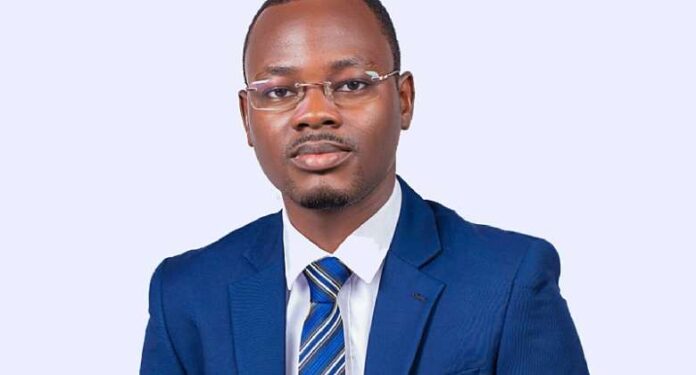
Divine Kpe, a senior programmes manager at Eduwatch, says Ghana seems to be paying for a service that is not being rendered and called for an investigation into the project.
“… if we have invested about GHS 84 million for installation,” he says “and we have to pay GHS6.3 million for the next five years and yet the students and the teachers cannot access the service then there’s no value for money.” Mr Kpe says there is a need for the Auditor-General to look into that.
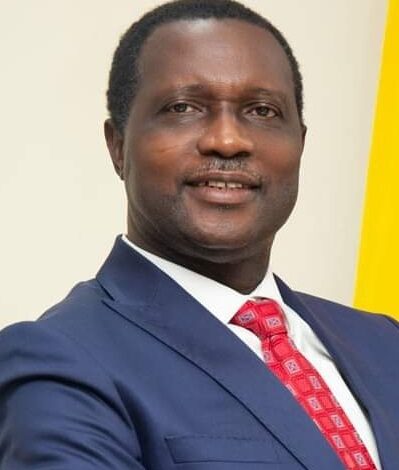
The Fourth Estate wrote to the Minister of Education for responses to these revelations. The Minister directed that we speak to the Executive Director for the Centre for National Distance Learning and Open Schooling, Nana Gyamfi Adwabour, who revealed that a monitoring system was set up to review the contract with Busy Internet in September 2023, almost three years into the implementation of the project.
Nana Gyamfi Adwabour also admitted that apart from the manual verification by a committee, there was no real-time monitoring system in place for the project until September 2023. Such a monitoring system was to be installed as part of Busy Internet’s obligations under the contract.
One of the legal wires that binds the government and Busy Internet in the contract was that, if Busy Internet failed to deliver its service to a school for 15 days, the company would not be paid. This legal wire was tripped not just for 15 days in some schools. As The Fourth Estate has learned, some schools did not have internet for as long as two years.
President of the Conference of Heads of Assisted Secondary Schools (CHASS) who is also the headmaster of Opoku Ware Senior High School in Kumasi, Rev Fr Stephen Owusu Sekyere, said the internet outages have been affecting teaching and learning in schools.
“At times, it goes off for about 2-3 weeks, other times, a month and then it’s restored but as we speak, my school has been off for over a month now and it’s not helping us at all,” he told The Fourth Estate on May 4, this year.
He continued: “We can’t use the service to improve teaching and learning in our schools.”
When The Fourth Estate sent a list of 53 schools without internet spanning 2020 to July 2023 to Lifted Logistics, the company failed to provide any information on that, stating “Busy Internet, which was in charge of this implementation at the time, has since suspended operations.”
Mr Agyapong-Bempa, however, said, “We have from August 2023 provided a monitoring system, which we gave you a briefing at our last meeting.”
Mr Agyapong-Bempa’s excuse that they could not provide the information on whether a school’s internet was functional or not until August 2023 because Busy Internet suspended its operations for those years is not accurate. This is because Lifted Logistics bought Busy Internet in 2018, a year before the contract was awarded and all payments for work done were made to Lifted Logistics.
If some schools did not have internet for more than 15 days as stipulated in the contract, why did the government of Ghana continue to pay the company for services in these schools? The Fourth Estate asked Nana Gyamfi Adwabour of the Centre for National Distance Learning and Open Schooling.
“I think this is a clear case for us to review again those two monitoring mechanisms to protect the public purse,” was his response.
Despite multiple requests for information, since July 2023, the Ministry of Education has refused to provide a monthly breakdown of what it has paid Busy Internet since January 2020.

Nana Gyamfi Adwabour also promised to provide the data after the interview on May 6, 2024, but failed to do so.
The Business lead of Lifted Logistics, Mr Bempa denied knowledge of how much his agency has so far received from the contract from the government.
But so far what we know is that the company received GHC56 million for work it supposedly did for nine months for which it cannot show any tangible results because most schools don’t have the services they were supposed to provide. This period includes the months The Fourth Estate visited and observed that the internet was not working in 48 out of 50 schools.
